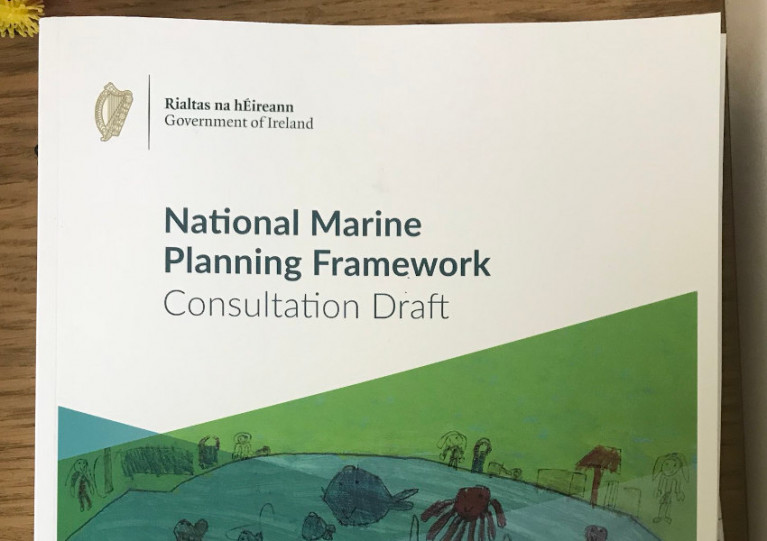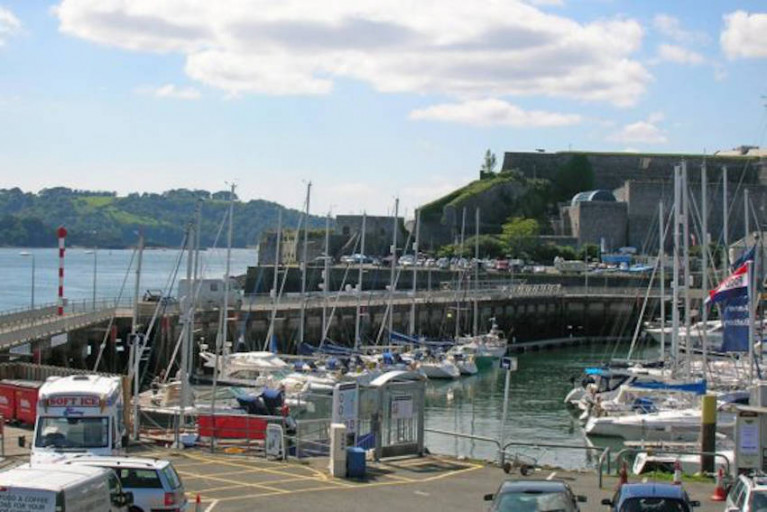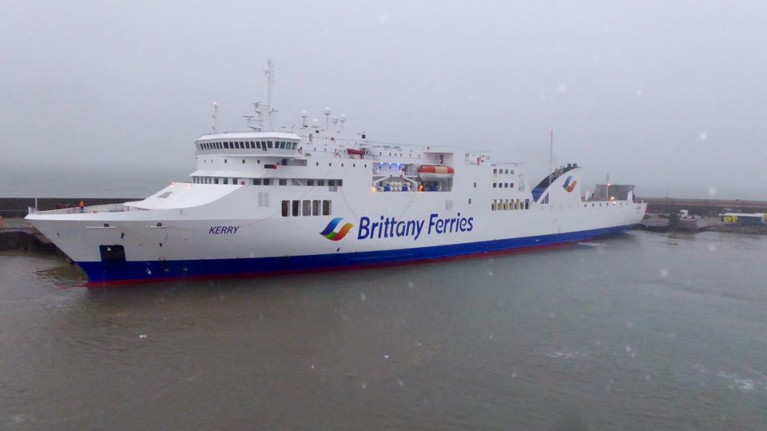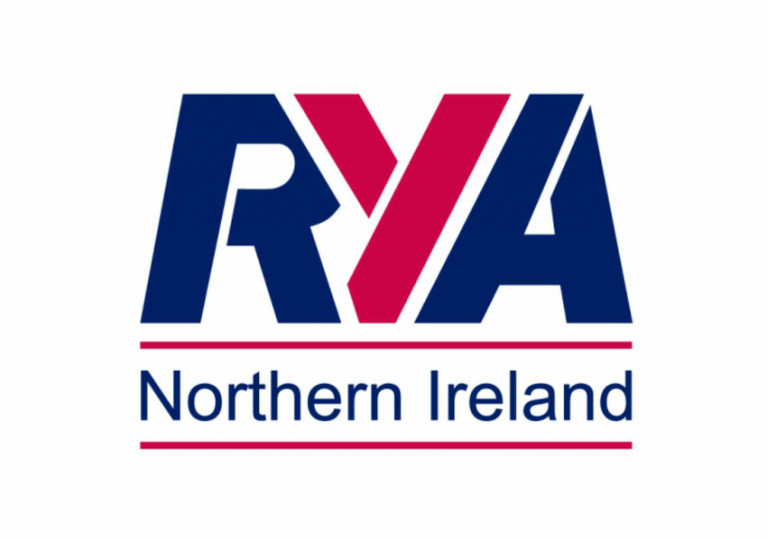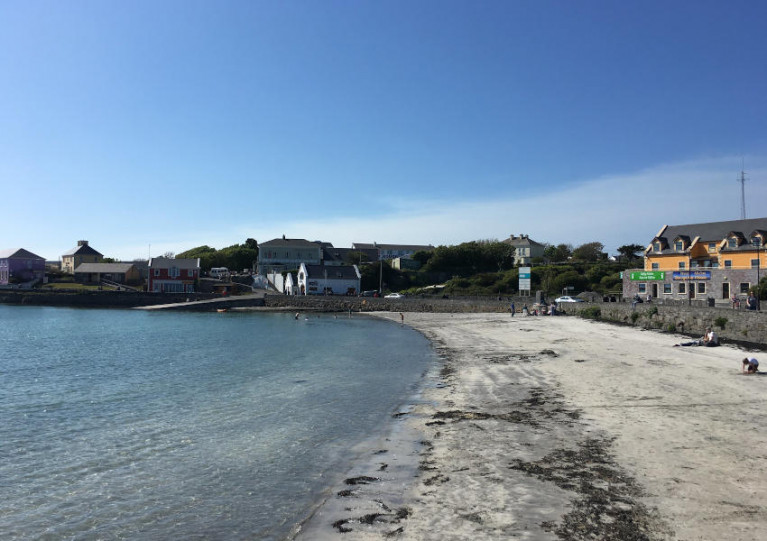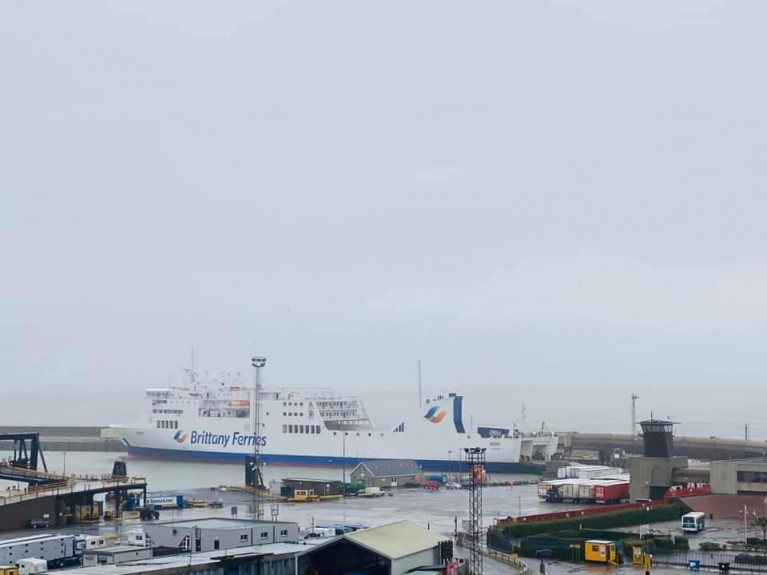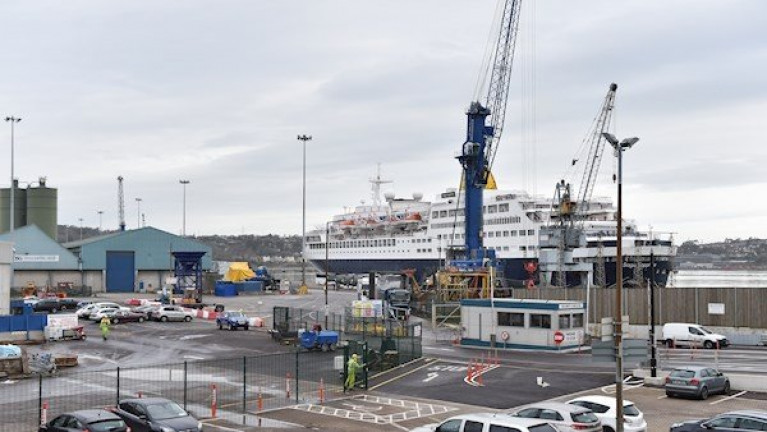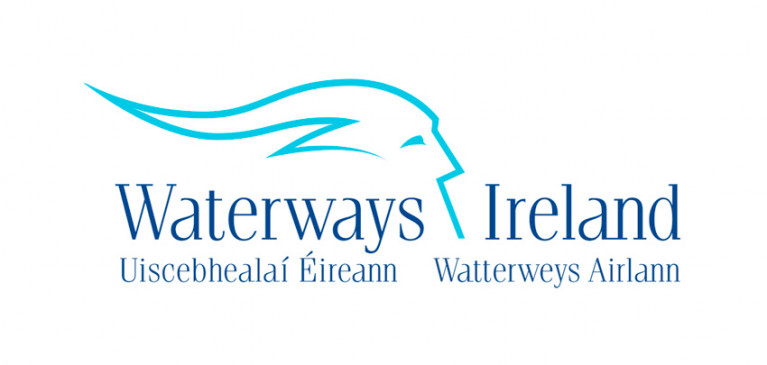Displaying items by tag: COVID19
Due to the current situation regarding Covid-19, upcoming public events on the National Marine Planning Framework planned for Kinsale next Monday 23 March and Wexford on Tuesday 31 March have been cancelled.
Department of Housing, Planning and Local Government says its Marine Planning Policy and Development team are available via [email protected] to answer any queries in relation to the draft framework.
The closing date for the receipt of submissions for the public consultation on the draft remains 3pm on the Thursday 9 April.
OSTAR & TWOSTAR Races Postponed To 2021 Over Covid-19 Concerns
Yachting Monthly is reporting that organisers of the OSTAR and TWOSTAR transatlantic races have postponed this year’s events until 2021 due to the Covid-19 pandemic.
The single-handed and two-handed fleets had been scheduled to set sail from Plymouth on Sunday 10 May in what is their 60th anniversary year, hosted by the city’s Royal Western Yacht Club.
In a statement issued on Monday afternoon (16 March), the RWYC said it aims to run the events “over a similar period in 2021”.
It added: “Since this will require compliance to the latest edition of Word Sailing OSRs for Cat 1 yachts, there will be a new Notice of Race, which will be issued in due course.”
Updated Wednesday 18 March to include details of the RWYC's official statement.
Further Suspension of Brittany Ferries’ Passenger Services Notably Rosslare to France & Spain
There is further suspension of Brittany Ferries passenger services as a consequence of the on-going Coronavirus (COVID-19) crisis which Afloat adds the French ferry operator has posted on its website, so click for updates.
According to Brittany Ferries this is in response to changing government policy in France, Spain and Ireland, and to protect all passengers and crew members at this difficult time. This decision has not been taken lightly, but has been taken in the best interest of all.
Changes France-Ireland routes:
Brittany Ferries will cease its weekly rotation connecting Roscoff in France with Rosslare Europort (however Afloat adds the new seasonal service was scheduled to start next Monday, 23 March). Afloat also adds the seasonal Cork-Roscoff route was to begin tomorrow, St. Patrick's Day, however sailings have been re-scheduled to Saturday, 11 April, according to their 'Irish' website.
The French operator added that the Kerry will however continue two rotations per week, carrying freight between Rosslare and Bilbao in Spain as Afloat previously reported on Saturday. (Since then Afloat adds the ropax ferry was tracked this afternoon arriving at Rosslare with the last 'passenger' service prior to becoming freight-only).
We are systematically contacting all affected customers by telephone, email and SMS but there is enormous pressure on our contact centre staff. The speed of response may not be up to its usual standard for which Brittany Ferries apologises in advance. Passengers are being asked not to contact us by telephone but to visit website: www.brittany-ferries.co.uk/routes/sailing-updates (scroll down for Irish routes) for the latest information.
Brittany Ferries very much regrets the effect that this ongoing disruption will have on customers. Directors will continue to monitor the situation with a view to resuming normal service as soon as the situation allows.
We respectfully ask all customers who are not booked to travel within the next two weeks to delay contacting our customer call centres. In addition, normal two-way interaction via social media may not be possible due to the volume of enquiries and availability of staff. Brittany Ferries apologises in advance for delays in usual response times.
As outlined below there are other changes on Brittany Ferries network from the UK to France and Spain.
Changes UK-France routes:
- Cherbourg to Poole service – Barfleur (until 23 March at least)
The last sailing will leave Cherbourg tonight 16 March 2020 at 21:45 for Poole.
- St Malo to Portsmouth service – Bretagne (until 24 March at least)
The last sailing will leave St Malo on Tuesday 17 March at 20:30 for Portsmouth
- Roscoff to Plymouth service – Armorique (until 26 March at least)
The last sailing will leave Roscoff on Wednesday 18 March at 15:00 destined for Plymouth
As things stand, sailings between Portsmouth and Caen on Mont St Michel and Normandie will continue as normal, for passengers and freight.
Changes UK-Spain routes:
For now ships serving routes connecting Spain with the UK will continue to sail. However, they will only carry passengers who must return home, therefore offering a lifeline-only service for British and Spanish whose travel is essential. Freight will continue to be carried as normal.
The RYA Northern Ireland says it is keeping developments regarding the COVID-19 virus in Northern Ireland “under close review”.
In a statement, the RYANI says it “will follow the guidelines set by the Northern Ireland Assembly and UK Government, and the advice provided by Public Health Agency Northern Ireland”.
“This continues to be a developing situation and RYA Northern Ireland will keep local clubs and centres fully informed of any changes.”
The RYA website is updated with its latest advice on Covid-19, which includes specific advice for affiliated clubs and Training Centres. The RYA will also update affiliated clubs via the RYA Club Room newsletter if and when this advice changes materially. Updates on the situation will also be provided via the RYA Wavelength newsletter.
As earlier reported on Afloat.ie, yesterday (Sunday 15 March) Irish Sailing called for “all organised sailing activity to cease with immediate effect” subject to review on Sunday 29 March, based on Government advice on social distancing and mass gatherings.
Galway Bay FM reports that residents on Inis Mór in the Aran Islands are appealing for tourists and other visitors to stay away for the next fortnight to limit the spread of COVID-19.
Comharchumann Forbartha Árann Teo issued a statement saying residents have overwhelmingly voted in favour of limiting travel to or from Inis Mór until Sunday 29 March.
In addition, islanders are asked to avoid travel to and from the mainland for the rest of this month’s containment period.
Brittany Ferries Maintains Freight to Spain But Suspend 'Passengers' On New Rosslare-Bilbao Route
Ferry operator Brittany Ferries has outlined a series of immediate changes to its schedules, in response to the on-going Coronavirus crisis.
On 12 March, the French government announced steps to protect its citizens.
According to the company employing all-French crew, Brittany Ferries announced that they must also respond quickly. It must prepare for the possibility that many crew may not be available to work, either through self-isolation or because they are caring for family members at home.
In addition the Spanish government has announced a state of alert, applicable from 14 March. This follows a significant increase in Coronavirus cases and advice from the UK Foreign and Commonwealth Office guidance advising citizens to avoid travel to certain regions of Spain.
The measures are therefore designed to ensure sufficient crew are available to operate as many services as possible, while responding to the dynamic political situation in Spain.
The following changes will apply until at least 9 April 2020:
(AFLOAT adds for information from the Irish Government, click HERE and including Travel advice this LINK plus the Irish Dept of Foreign Affairs website).
Ireland-Spain
Brittany Ferries’ Kerry service operating between Rosslare and Bilbao will take only freight. The last passenger service will leave Bilbao tomorrow at 12:00 on Sunday 15 March bound for Rosslare. This change applies until at least 9 April 2020. For sailings schedule click HERE.
Ireland-France
Following dry-docking in Poland, Pont-Aven (as Afloat reported) the flagship will not return to service on Tuesday as planned on 17 March (St. Patrick's Day) until at least 9 April 2020. Pont-Aven was scheduled to serve the following destinations: Portsmouth-Santander-Plymouth-Roscoff-Cork. For sailings click HERE.
These changes will be reviewed by directors in the days and weeks to come. All passengers with existing reservations will be offered a full refund. Where possible - and acceptable to the traveller - alternative arrangements will be made on other Brittany Ferries services.
“On behalf of everyone in the company, I would like to apologise for the significant disruption this will cause to many customers,” said Christophe Mathieu, CEO Brittany Ferries. “However, under the extraordinary circumstances of the current crisis, we have no option but to take decisive action now to respond to the challenges we face. We thank everyone for their understanding at this difficult time.”
It is likely that customer relations teams in all markets will be extremely busy in the days to come. In addition, normal two-way interaction via social media may not be possible due to the volume of enquiries and availability of staff.
Brittany Ferries apologises in advance for delays in usual response times.
Click here for further information on changes to some of the operators other routes.
Stena Line Issue Statement On Single-Freight Driver Occupancy
Due to the design of Stena Line ferries as well as the length and nature of crossings, the ferry operator has issued a statement regards them always operating to a shared cabin policy for freight drivers.
Stena added, as we have always done, where a driver wishes to have their own cabin we will endeavour to meet their request when there are cabins available.
In the current circumstances with the COVID-19/Coronavirus, where a driver now requests a single occupancy cabin and there is one available, we will waiver the additional charge to the driver.
If none is available and the driver still does not wish to share then they will be offered a recliner seat in our premium 'Hygge' recliner lounge or other recliner lounge, free of any additional charge.
Drivers will still have access to the Truckers dining facilities and amenities as they currently enjoy.
As situation develops and the flag states, under which the ferries operate, give further information and guidance, we will of course review this.
As earlier reported on Afloat, Seatruck Ferries have introduced temporary restrictive measures whereas Irish Ferries freight operations continue as normal.
The Hygge lounge is among facilities on board the newest ferry on the Irish Sea, Stena Edda which recently made its maiden voyage on the Belfast-Birkenhead (Liverpool) route albeit the inaugural crossing departed on Merseyside to Belfast Harbour.
Freight (Truck) drivers, writes The Irish Times, have complained that they cannot get clear directions about Covid-19 safety rules from the Government on how they can be protected on the road in order to safeguard Irish supply chains.
The Irish Road Hauliers’ Association (IRHA) has sought clarity from the Department of Transport on whether drivers can get single cabins on ferries, or be allowed to sleep in their trucks, which they cannot do now.
The association also wants measures to protect drivers and cargoes if a driver falls ill on the road. Tachograph rules must be relaxed, too, if drivers are forced to drive for longer.
Incoming IRHA president Eugene Drennan said some ferries were now attempting to provide single cabins. However, he said truckers have looked for for clarity from the State for three weeks, without success.
Guarantees about cleanliness onboard ferries and in ports is needed, said Mr Drennan: “It’s very important that we can reassure our drivers that we have backup; if you get ill, Europe can get you out of that cab.”
Unaccompanied trailers (Seatruck Ferries)
Meanwhile, Seatruck Ferries, which operates routes: Dublin/Liverpool, Dublin/Heysham and Warrenpoint/Heysham is to temporary stop carrying HGV drivers and passengers on board.
The newspaper has more on this development here including a response from Irish Ferries (freight website) and Stena Line (also freight).
Afloat adds for more information on Un-accompanied trailers, HGV drivers and passengers (Afloat also adds only motorist based) click Seatruck's statement on Covid-19 here. In addition to information for car passengers click here.
For an insight into ro-ro freight operations Afloat's 'Ferry Captain Interview' featured the Seatruck Pace when serving on the Heysham route. The P-class currently operates on the Dublin/Liverpool route.
Cruise Ship Had Clean Bill of Health Insists Port of Cork Before Hundreds of Tourists Disembarked
It has been insisted by port authorities that the first large cruise ship of the season which brought hundreds of tourists to Cork Harbour and city today (yesterday) had a clean bill of health.
As the Irish Examiner reports, the Port of Cork said all relevant checks were conducted before the MV Saga Sapphire berthed last night in Ringaskiddy Ferry Terminal, on route from Dublin Port where the vessel had been for two days (as Afloat previously highlighted).
Its passengers boarded coaches this morning for a range of short excursions around the region, including to Blarney Castle.
Concerns had been expressed in Cobh, where cruise ships normally berth, and in Ringaskiddy, about the ship's arrival.
However, the port authorities said cruise ship tourism offers no higher risks compared to tourists visiting via airports or public transport.
The spokesperson said however that port authorities are constantly monitoring what is a quickly evolving situation both at a national level, and globally as cruise ship operators make their own decisions in relation to their operations.
The Port said the Ringaskiddy Ferry Terminal has been fully sanitised and is equipped to handle a vessel the size of the Saga Sapphire.
For more on the newspaper's story click here.
In addition Afloat adds the day before the cruise ship berthed at Ringaskiddy, the Port of Cork issued a statement concerning the cruise season 2020 and Covid-19 precautionary measures. The statement from the Port of Cork can be read here.
Afloat also adds another notable Covid related travel update also announced on Thursday is that the 'over-50's UK based cruise operator is to make changes to cruise travel following advice from the UK Government for those over 70 and for those with an underlying medical condition.
The advise has led to temporarily suspending Saga's Ocean cruises from 15 March 2020 to 1 May 2020 on board Saga Sapphire and Spirit of Discovery (See newbuild maiden cruise to Dublin Port) and also during last summer's inaugural cruise with a first visit to Cobh.
Flood-Hit Facilities Remain Closed, Says Waterways Ireland
Waterways Ireland advises all masters of vessels and water users that inland waterways facilities that are currently closed following on from the recent and ongoing flood event will remain closed until further notice.
The locks and bridge opening times on the Shannon Navigation will remain at winter opening times until Friday 29 March. Lock and bridge opening times will remain as weekdays from 9am to 12.30pm and Sundays from 10am to 12.30pm.
Waterways Ireland is also encouraging all masters of vessels and water users on all navigations to continue to follow the guidelines which have been provided by the health authorities regarding the COVID-19 outbreak.
In other news, the Green E Buoy at Goat Island on Lough Derg is now back on station.


























